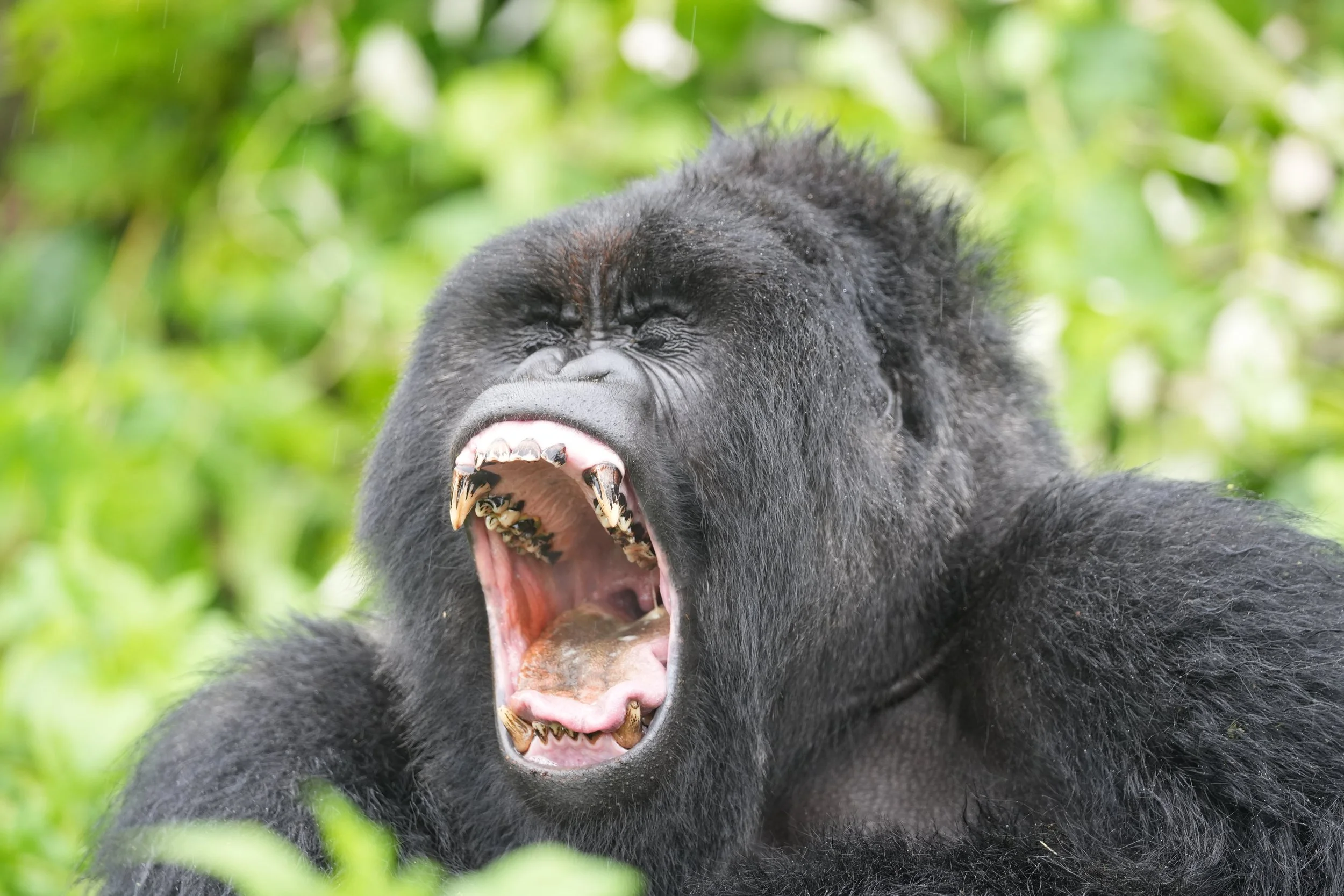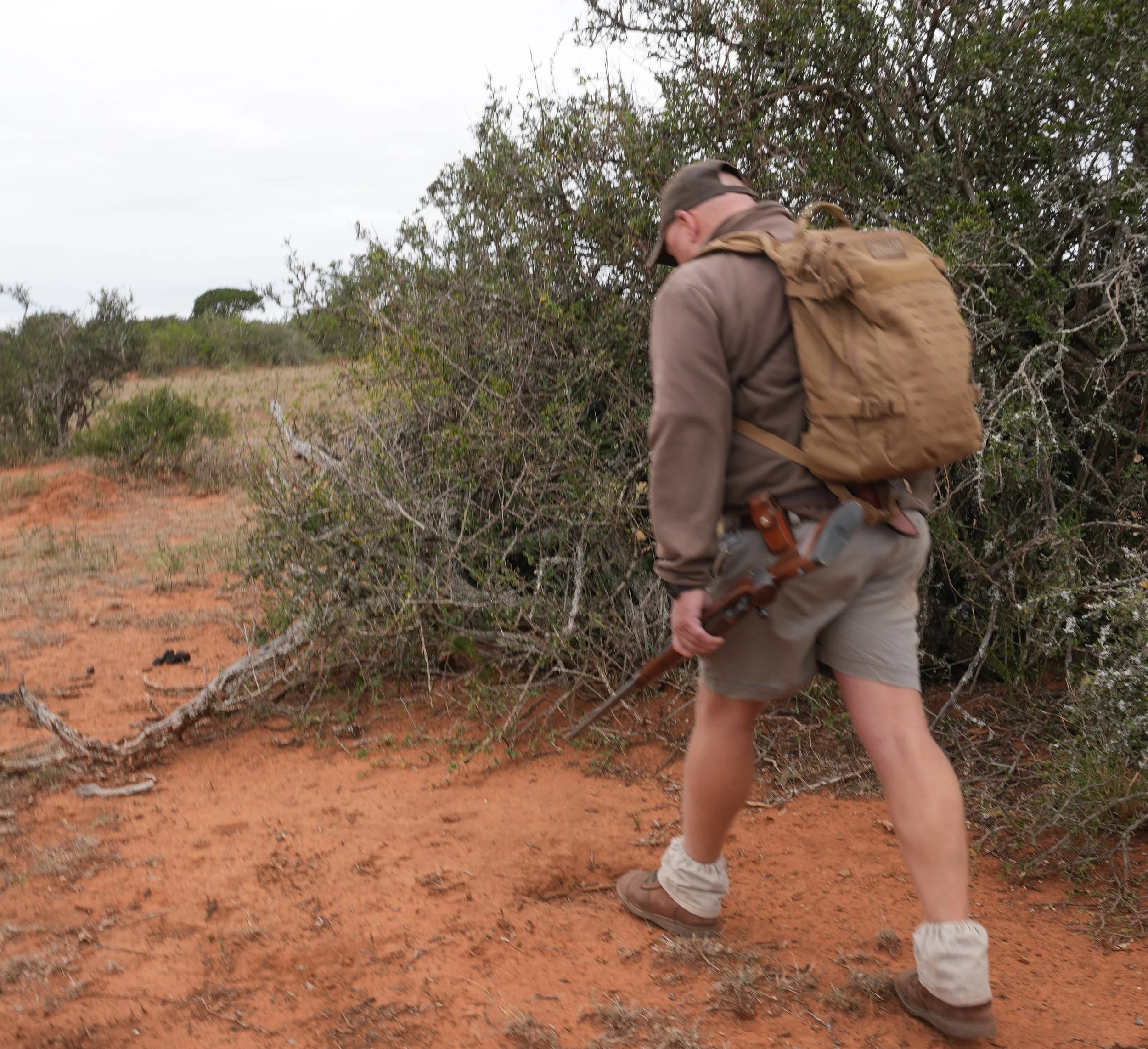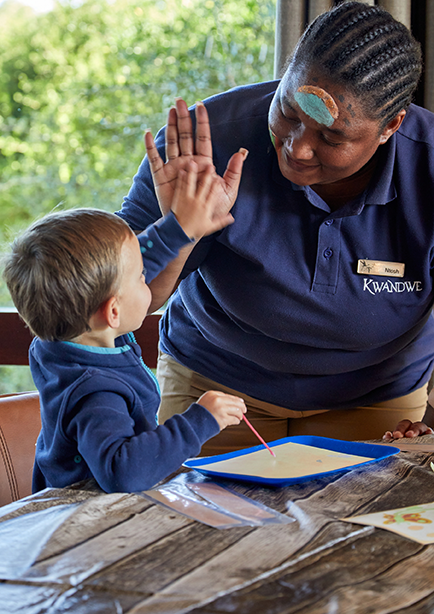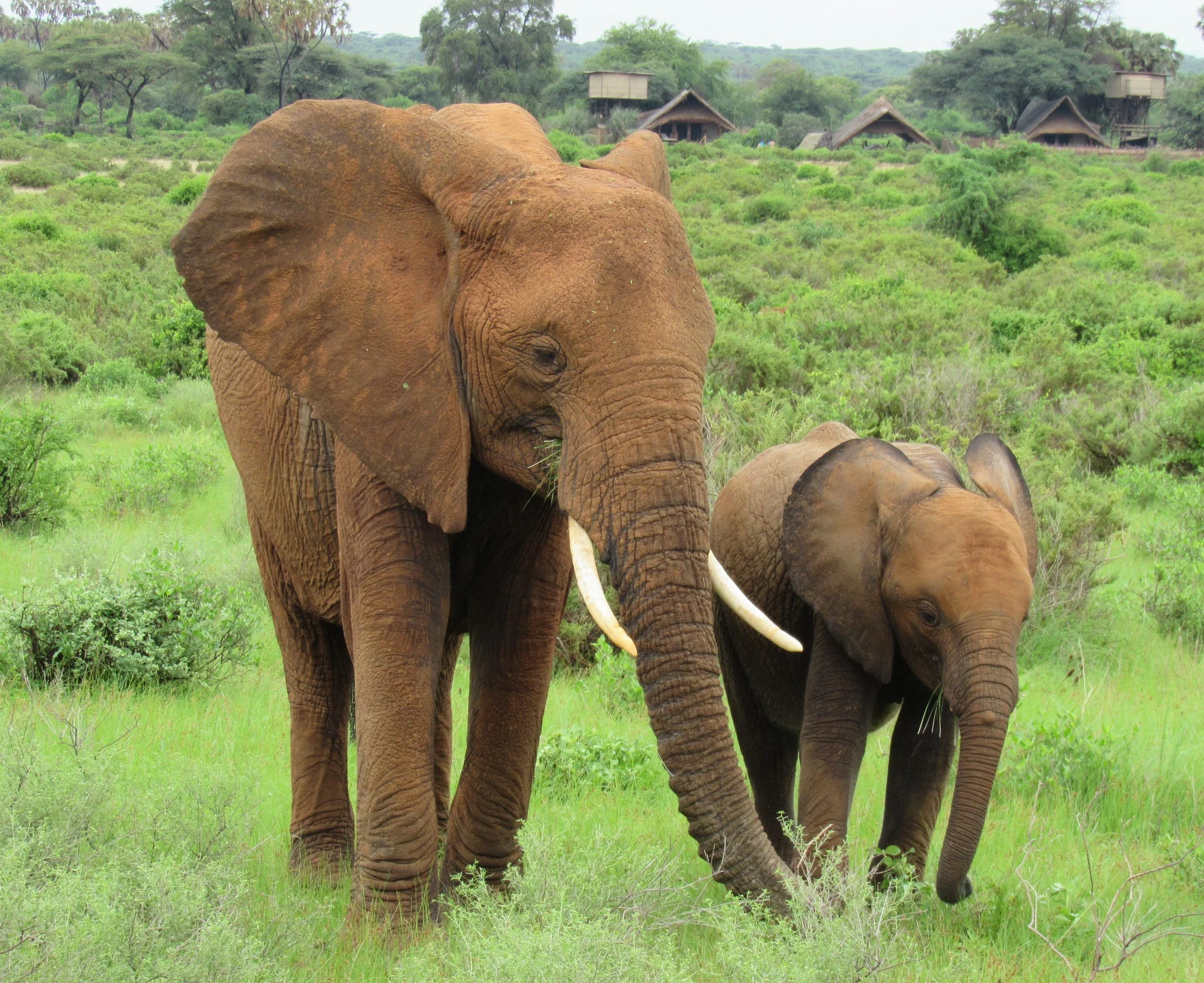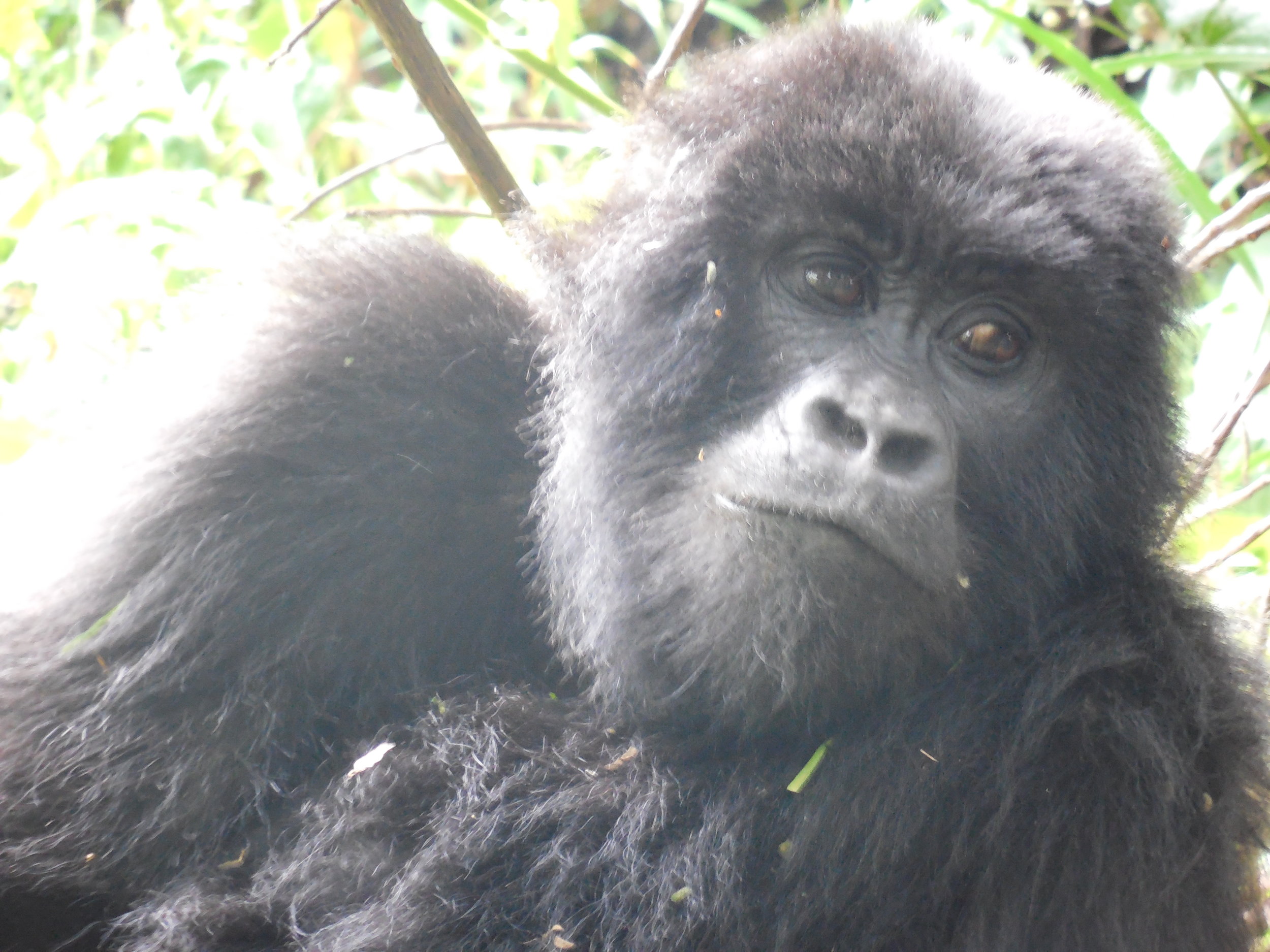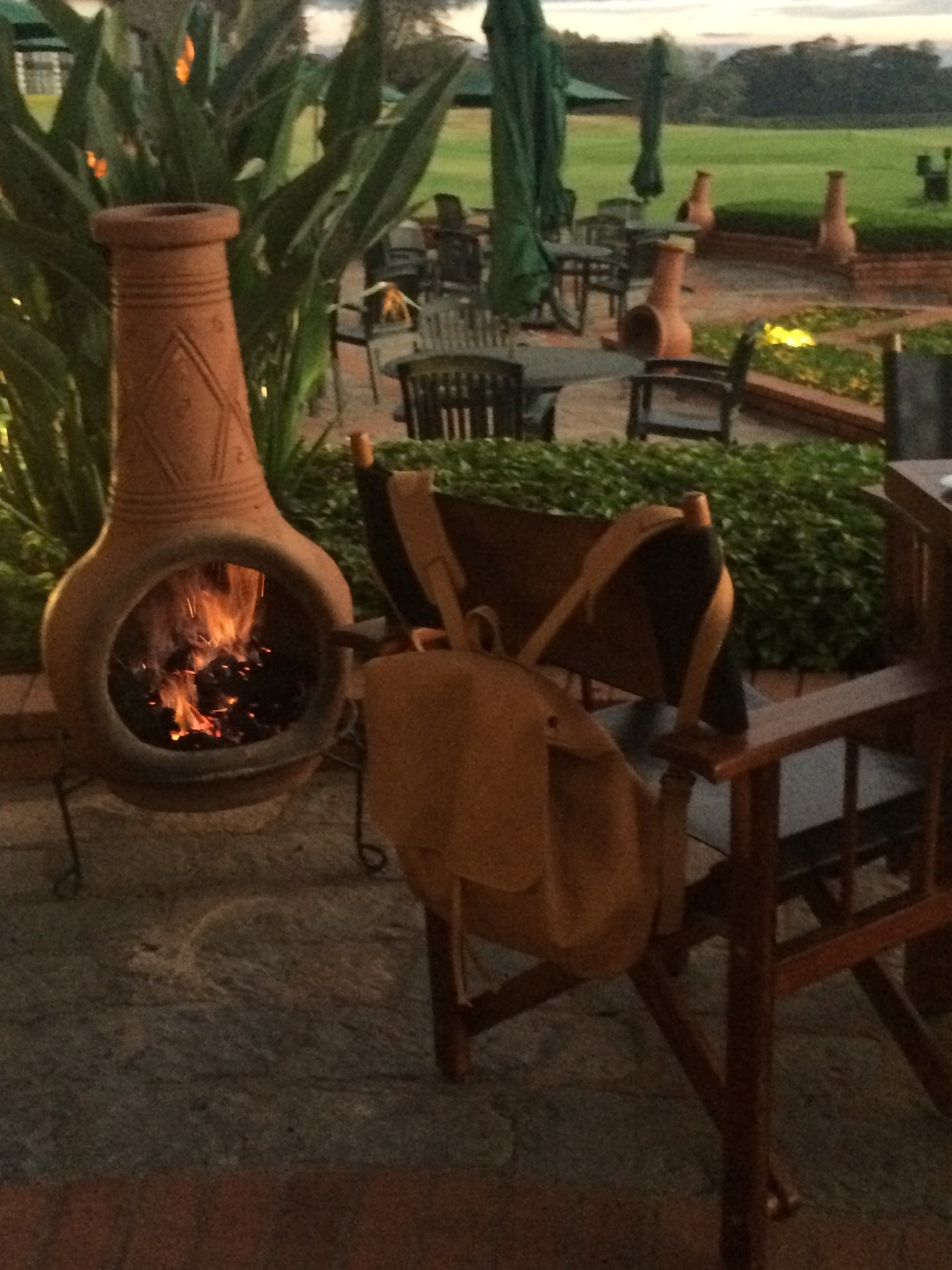1. When is the best time to go on an African Safari?
This depends on where you go and what you want to see. For example, South Africa is in the Southern Hemisphere. During their Winter, Northern Hemisphere Summer, the Elephant Grass is dead. This is the time of year preferred for Photographers. Great Migration in Kenya? Late June, July, August, and September. Want to save money? I had one of the most spectacular Gorilla Treks in Rwanda during November “Rainy Season”. What time of year is part of the discussion when planning!
Here you will find my lists of the Seasons for East and Southern Africa.
Guide on South Africa Bush Walk © Flyga Twiga™ LLC
2. Is it safe to travel to Africa for a Safari?
Yes – when you know what to do, where to go, and with whom to go. Why my Slogan is “Happy Day! Safe Safari!” You can find out more, here.
CDC Cover © Flyga Twiga™ LLC
3. What vaccinations or medications are required for an African Safari?
This depends on where you want to go. East Africa requires “Yellow Fever”. To the point Uganda will make you take the Vaccine, at the Airport, if you forget your Center for Disease Control Card (CDC). You can find here the CDC Vaccine Suggestions for Travel.
Photo Credit: Ecca Lodge Kwandwe Private Game Reserve
4. Can children or families go on an African Safari?
Absolutely! South Africa, outside greater Kruger National Park, is Malaria Free. Places such as Kwandwe Private Game Reserve, in South Africa’s Malaria Free Eastern Cape, have entire an Safari Lodge designed for children. Ecca Lodge is entirely fenced, for your child’s safety. In addition to special programs for children, each Family is given a Private Game Drive Vehicle. The perfect way to introduce budding Conservationists to African Wildlife!
Leopard, Mara North Conservancy, Kenya © Flyga Twiga™ LLC
5. Where is the best place to see the “Big Five” on Safari?
The “Big Five” were named by Teddy Roosevelt as the most difficult to hunt. We now “hunt” the Lion, Elephant, Leopard, Cape Buffalo, and Rhinoceros with our Cameras. While you can never guarantee which animals will decide to show themselves, there are places where you will have a greater likelihood for specific animals.
While having excellent Gorilla Trekking, Uganda does not have Rhinos in the wild. Kenya does, with Amboseli National Park having the famous Elephants which migrate within the Park. In South Africa, Sabi Sand has the largest density of Leopards on Earth! That said, one of the best Leopard sightings I’ve had on Safari was in Mara North Conservancy in Kenya.
We’ll plan together where your African Safari will be best – for you!
EcoTraining Trackng South Africa ©Flyga Twiga™ LLC
6. What should I wear or pack for an African Safari?
Jomo Kenyatta Airport Nairobi, Kenya © Flyga Twiga™ LLC
7. Do I need a Visa to visit African countries for a Safari?
Yes. This is also dependent on your Passport Country. For Americans, some are Visa Upon Arrival (such as South Africa), while others, such as Namibia have a long pre-Arrival application process. Here is the more in-depth. We see you through the process and make 100% sure you have all the documentation.
Fishing at Malaria Free Kwandwe Private Game Reserve, South Africa © Flyga Twiga™ LLC
8. What is the difference between a National Park and a Private Game Reserve?
There are 3 major differences. First is Ownership and Management. National Parks are publicly run and managed by the government (e.g., Kenya Wildlife Service for Amboseli). Private Game Reserves are owned and operated by private individuals, entities, or companies (e.g., Kwandwe in South Africa).
The second is Access and Regulations. National Parks are open to the Public, with Entry Fees, Self-Drive Options (for Residents), and stricter Rules on Activities (e.g., no Off-road Driving). Kruger National Park is a good example. Private Reserves typically restrict access to Guests staying at affiliated Safari Lodges (often called Concessions within the Safari Industry), allowing more flexible activities like Guided Night Drives or Walking Safaris.
The third is Size and Experience. National Parks are often larger and busier, offering diverse Ecosystems, with potentially more crowded viewing. Currently there are numerous Viral Videos regarding this year’s Great Migration. Private Reserves are smaller, more intimate, with lower Game Drive Vehicle densities. They may offer better wildlife sightings, and they may fund Conservation through tourism revenue. Kwandwe Private Game Reserve is an excellent example.
Loving Twiga, Kenya © Flyga Twiga™ LLC
9. What does a typical day on an African Safari look like?
A sample Safari Day:
05h00 A wake-up knock on your door. Tea, Coffee, and Rusks are served on the Lodge’s Main Deck followed by the Moring Game Drive, departing 05h30. Duration is approximately 3 hours.
Return to Lodge for a hearty African Breakfast. Plan one day for Bush Walk following Breakfast.
Between Game Drives, Relax by the Pool, Go to the Gym, Enjoy the Library & Games Room, Spa Activities, View Wildlife from the Viewing Deck.
Afternoon Tea, followed by Evening Game Drive. Sundowners on Safari. Followed by Dinner at the Lodge. Possible Night Game Drive.
Enjoy drinks by the Boma, sharing your day’s adventures with fellow travelers.
Lala Salama – rest well for another early Morning Game Drive tomorrow! #SafariLife
Cheerful Waitstaff South Africa © Flyga Twiga™ LLC
10. How much should I tip on an African Safari?
As the Safari approaches, this is the biggest concern for my Clients. As such, we tailor a personalized Tipping Guide for your bespoke Safari. While we can’t anticipate every moment you will want to tip, we arm you with the best knowledge extensive Safari experience can provide.
We can’t wait to start planning your dream African Safari Adventure!
East and Southern Africa Safaris are booking 2 years out -
Let’s start chatting today!
Happy Day! Safe Safari!
Mama and Baby Ellies, Kenya © Flyga Twiga™ LLC

